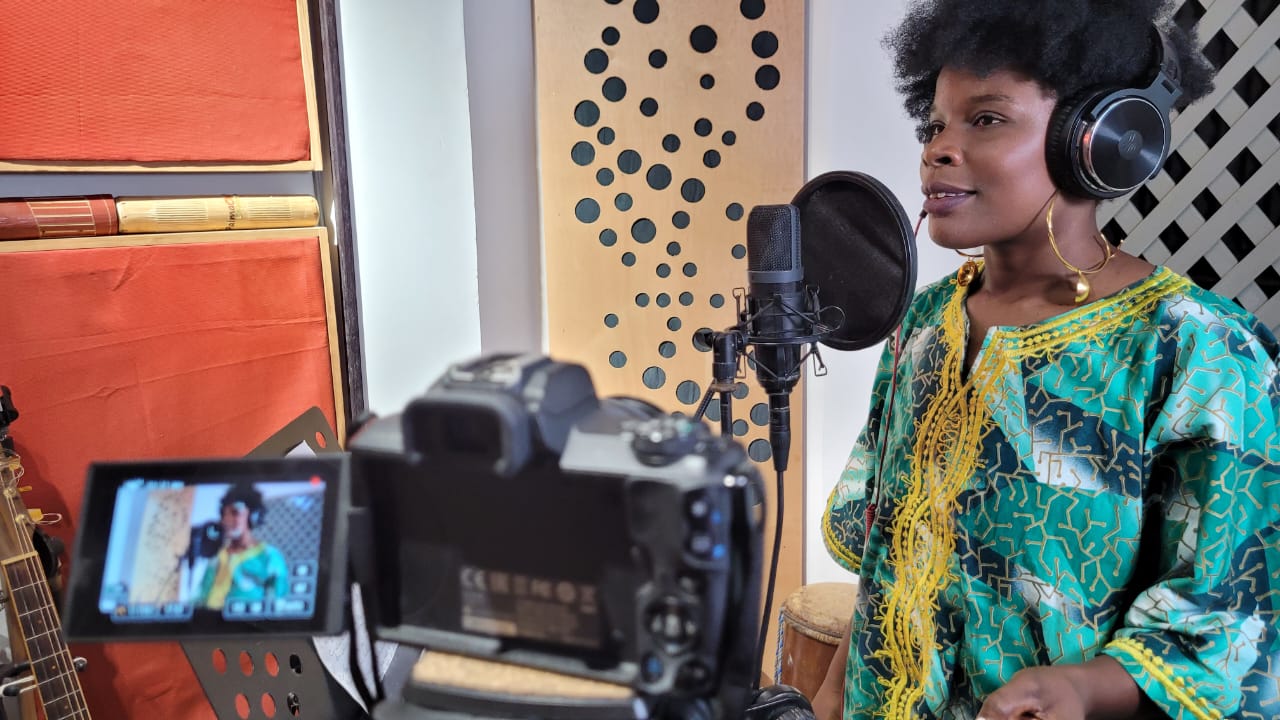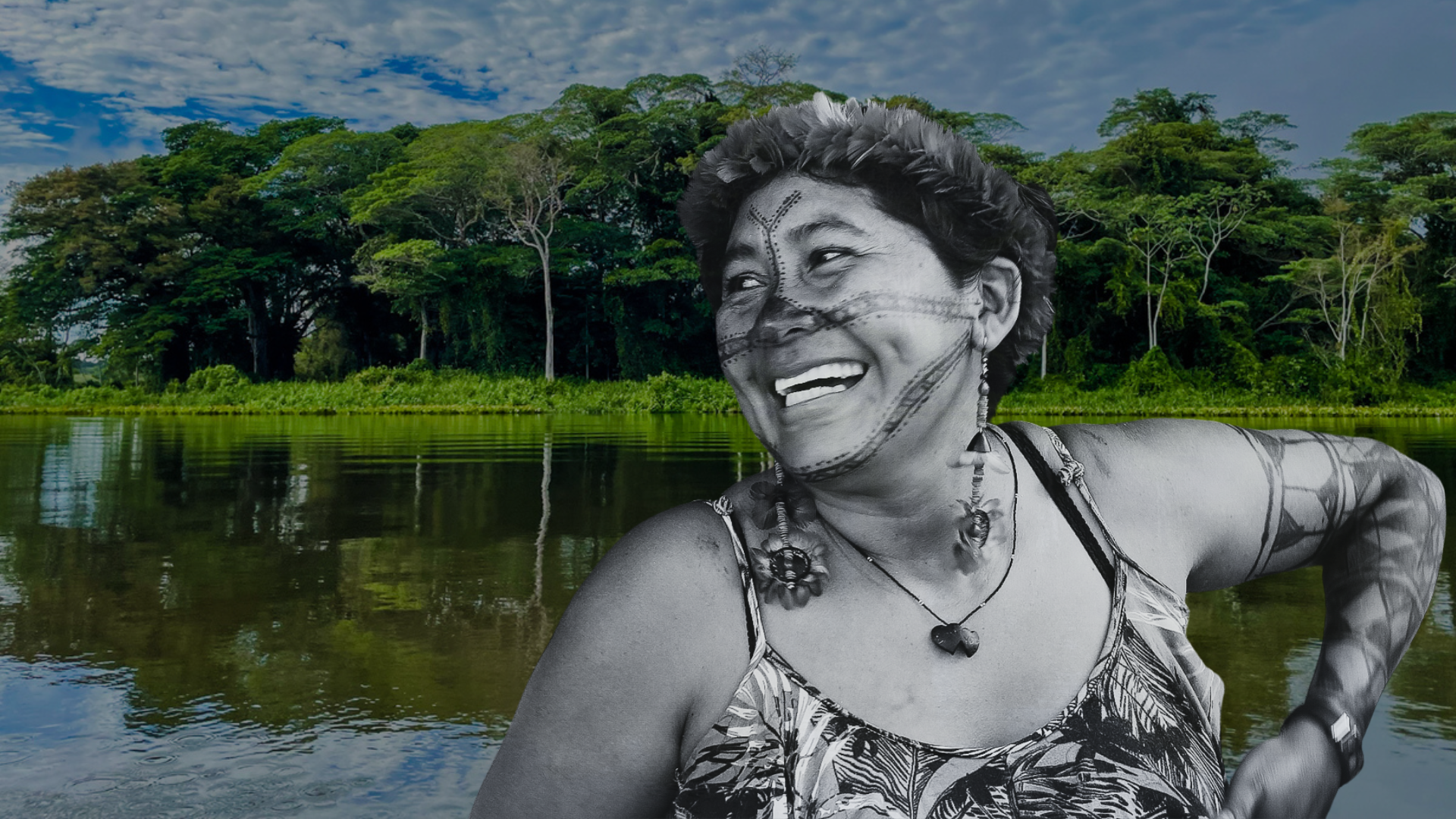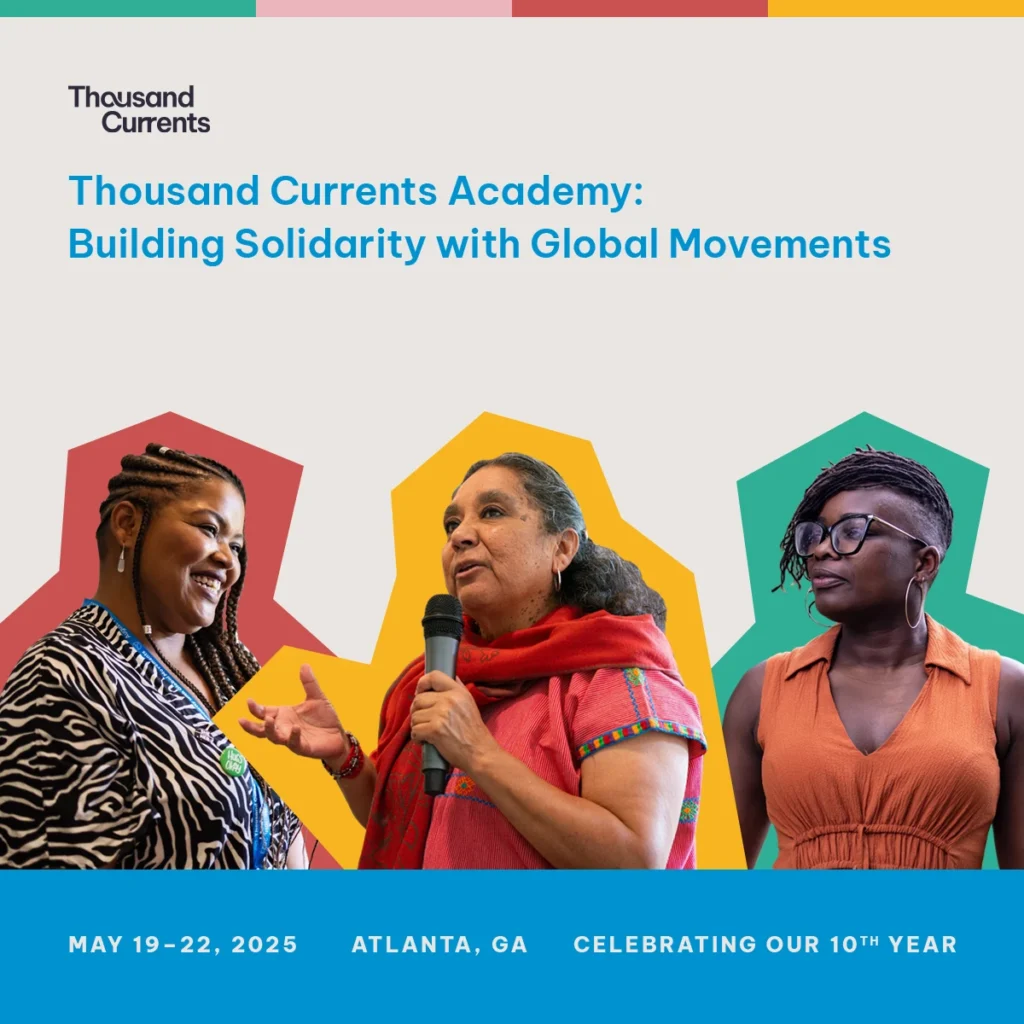Brazil | Founded in 2007 | Thousand Currents Partner since 2024
Fórum de Comunidades Tradicionais de Angra dos Reis, Paraty e Ubatuba (FCT)
Grassroots Movement to Defend Lands and Livelihoods of Indigenous, Caiçara and Quilombola Communities
Fórum de Comunidades Tradicionais de Angra dos Reis, Paraty e Ubatuba (FCT) was founded in 2007 in the Southeast of Brazil. FCT is a local grassroots movement born out of the historic alliance between Indigenous, Caiçara, and Quilombola peoples and communities. They realized that together they are stronger and better equipped to resist the encroachment onto their territories, the violation of their rights and threats to their traditional ways of living.
FCT organizes, mobilizes, and represents more than 150 Guaraní, Caiçara and Quilombola communities to defend their territories, protect the Atlantic Forest biome, their identities and cultures, and ensure their Buen Vivir. FCT’s actions are guided by eight axes that they call frentes de luta or fronts of struggle:
- Youth Nucleus
- Nhandereko Community-Based Tourism Network
- Differentiated Education
- Culture
- Artisan Fishery
- Cuisine of Traditions
- Agroecology
- Women
Based on an ancestral vision of the world that opposes the time and logic of the capitalist system of accumulating land, goods and capital, they understand nature as a living entity that has a relationship of kinship and interdependence with their communities. In their view, communities need the territory to stay alive and thrive, and the territory needs the communities to stay alive and thrive. This interaction is directly responsible for the high rates of biodiversity preserved in their territories.
FCT together with the Observatório de Territórios Sustentáveis e Saudáveis da Bocaina has led a process of mapping communities, traditional territories, and needs for territorial management and environmental education, including basic and ecological sanitation. Almost 200 communities have been reached so far. FCT has also advocated for a school curriculum that includes ancestral knowledge and history of the Guaraní, Caiçara and Quilombola people and communities. They use cultural productions and campaigns to make their cultures visible to people and institutions across society, strengthening culture and identity throughout their territories, and educating people on how the traditional knowledge supports biodiversity and community wellbeing.
Related Stories





